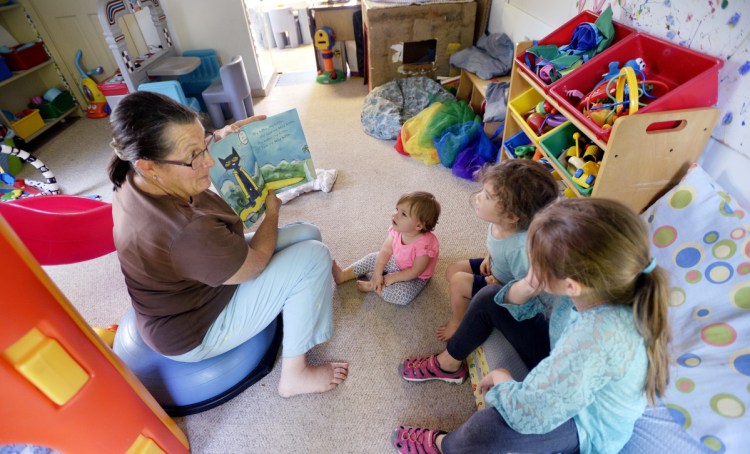The United States last year posted its lowest fertility rate on record and the fewest number of births in 20 years. Whether that is no more than a statistical blip depends, like so much else, on the actions of the millennial generation – and given how we treat early childhood in this country, who can blame Americans in their 20s to mid-30s if they hold off on becoming parents?
There were 3.85 million births in 2017, 2 percent fewer than 2016. That’s nearly 500,000 fewer newborns than 2007, even though there were 7 percent more women in the prime childbearing years of ages 20 to 39. That puts the fertility rate at a record low 60.2 births per 1,000 women, taking the U.S. further away from the level necessary to replace one generation with the next.
It may be that the members of this generation are putting off marriage, so kids will come later. Perhaps they are waiting until they are on firmer financial footing, or until they are finished education or have established their careers. Perhaps it is all just a delay that over time will work itself out.
Or maybe millennials, already saddled with student loan debt and unaffordable housing, look at the high cost of child care and the burden placed on parents of newborns, and figure they just can’t pull if off.
The U.S. is the only developed country where there is no statutory right to paid maternity leave. Instead, federal law guarantees only 12 weeks of unpaid leave for employees of companies with more than 50 employees. (Maine law lowers the threshold to 15 employees.)
Because few low- and even middle-income Americans can afford to take three months off without pay, mothers – and fathers, since paternity leave is virtually nonexistent – must hurry back to work, missing key bonding time beneficial for both baby and parents. (Studies and experience have shown that employers also benefit from leave policies.)
Then, once back at work, new parents must pay for child care, another increasingly high hurdle.
In Maine, the annual cost of child care for an infant is slightly more than in-state college tuition, and nearly 17 percent of median family income, when anything more than 10 percent is considered unaffordable. For single parents, child care can account for more than 30 percent of income. In many cases, these families are already paying 40 or 50 percent of their pay toward housing.
So perhaps there is just a generational shift going on, and when all is said and done we’ll have enough births to replace our aging workforce and generate revenue. Or perhaps millennials, facing financial strains like no generation before it, are simply making a practical choice.
We shouldn’t wait to find out. Even if the incredible strain on new parents isn’t the reason that many are forgoing parenthood, better leave and child care policies will strengthen families, produce healthier children and provide businesses with better workers.
At the federal level, the PACE Act, sponsored by Sens. Angus King, I-Maine, and Richard Burr, a North Carolina Republican, would expand tax credits for child care and make them refundable, helping lower-income parents.
In Maine, a bill from Democratic state Rep. Erin Herbig of Belfast and Republican state Sen. Amy Volk of Scarborough would study an employer-funded paid leave program.
The cost of becoming a parent has been increasing for decades, and it’s these kinds of actions that would reverse a trend that is hurting families.
Send questions/comments to the editors.


